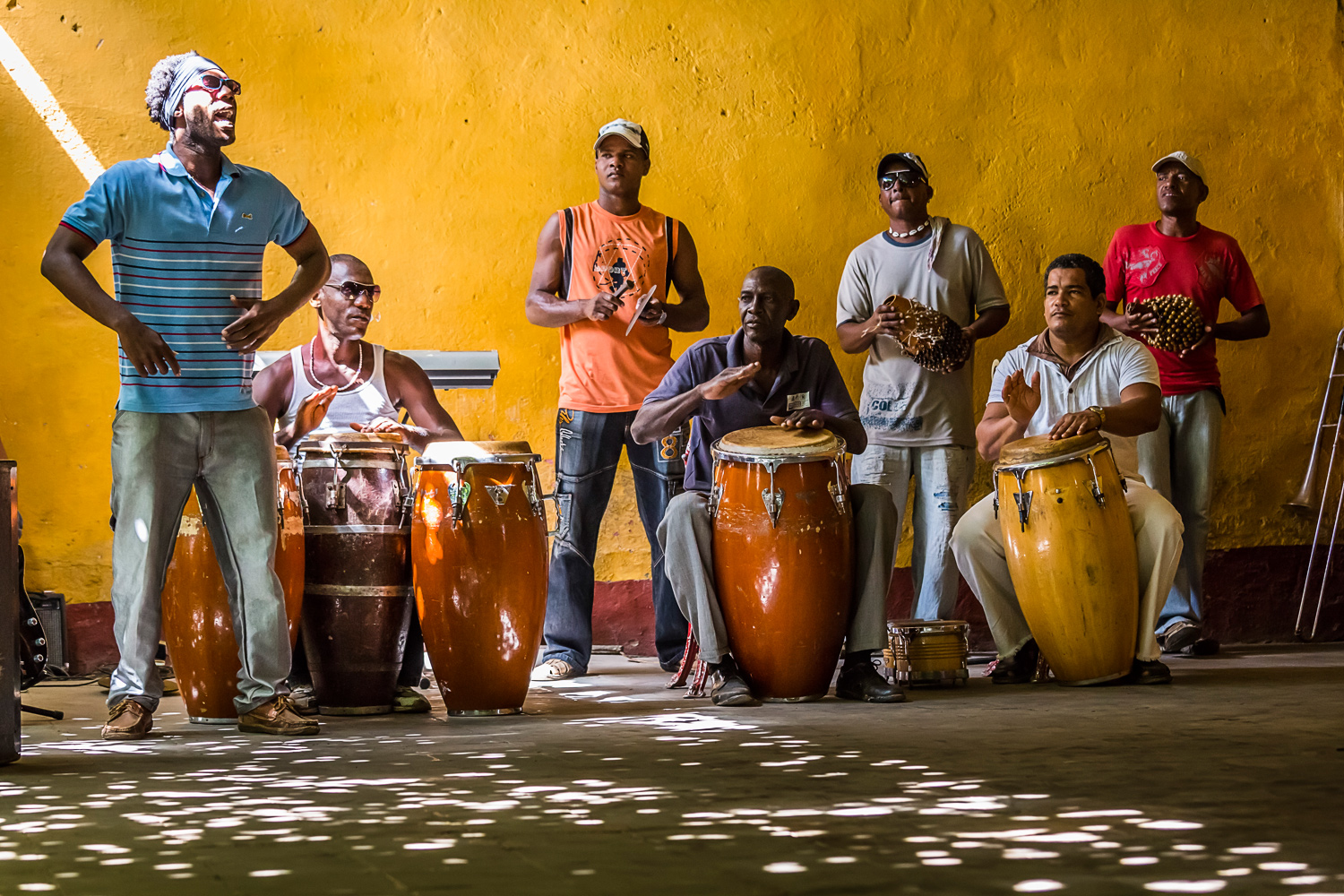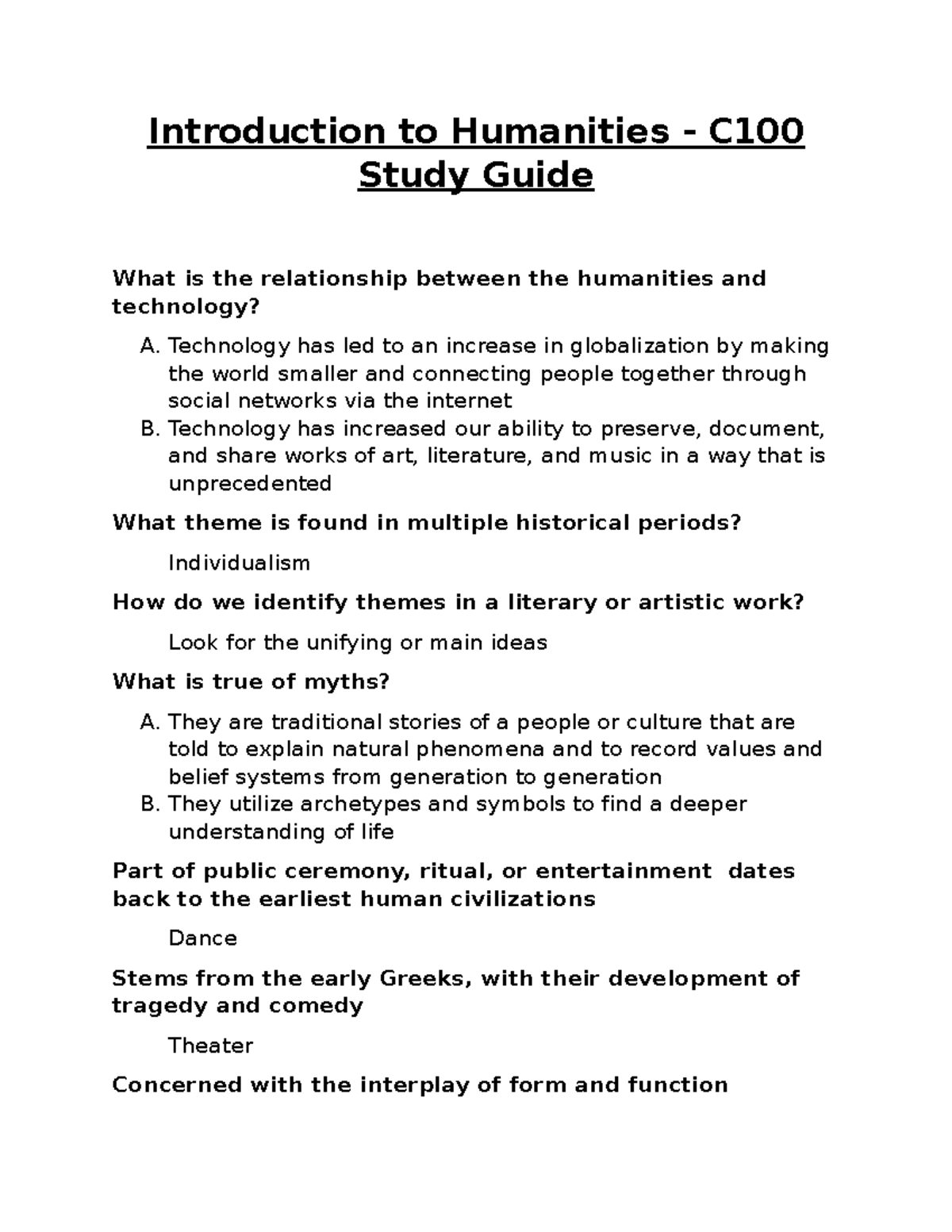Afro-Cuban music embodies a rich tapestry of cultural influences that intertwine African roots with Caribbean rhythms, creating a unique and vibrant soundscape. Under the guidance of renowned musicians like Yosvany Terry, this genre not only preserves traditional music but also resonates deeply with the Afro-Latin heritage that flourishes in Cuba and beyond. Terry, who leads the Harvard Jazz Ensembles, emphasizes the significance of exploring these musical connections between regions, particularly through his insights gained during recent travels to West Africa and Cuba. As the music evolves, initiatives such as ArtsThursdays provide a platform for sharing these profound cultural narratives with a broader audience, showcasing the enduring legacy of traditional music preservation. Through these concerts and collaborations, listeners are invited to experience the dynamic energy of Afro-Cuban music, reflecting its vital role in shaping cultural identity and community engagement.
The world of Afro-Cuban rhythms and melodies represents more than mere entertainment; it is a powerful fusion of diverse cultural legacies that spans continents. This musical tradition intricately weaves together elements from both African and Caribbean heritage, offering a vibrant expression of identity that resonates with many. With leading figures like Yosvany Terry at the forefront, the preservation and celebration of these sounds are paramount, ensuring they thrive within modern contexts. Events such as ArtsThursdays serve as crucial connections between academia and artistic practice, fostering an environment where such cultural exchanges are not only recognized but also revered. By highlighting these distinct Afro-Latin influences, we open gateways to deeper understanding and appreciation of the intricate history behind this music.
Exploring Afro-Cuban Music: The Cultural Bridge between Africa and the Caribbean
Afro-Cuban music serves as a vital cultural bridge linking the rich musical traditions of Africa with the dynamic sounds of the Caribbean. Musicians like Yosvany Terry emphasize the importance of these connections through their work, showcasing how these sounds have evolved and influenced one another over centuries. Terry’s research in both West Africa and Cuba highlights this symbiotic relationship, where traditional rhythms and melodies from Africa have seamlessly merged with Caribbean styles, creating new genres that resonate globally. Such explorations underscore the significance of preservation in maintaining the musical identity that ties communities to their ancestral roots.
Through performances and educational initiatives, like those supported by ArtsThursdays at Harvard, the impact of Afro-Cuban music extends beyond mere artistry; it is a testament to resilience and cultural pride. By introducing students to the foundational elements of these musical heritages, Terry aims to foster a deeper understanding of how Afro-Cuban music has influenced various art forms, including jazz. Such connections help illuminate the ongoing dialogue within music that honors tradition while also innovating, ensuring that the cultural legacy remains vibrant and relevant.
The Role of ArtsThursdays in Cultural Preservation and Education
ArtsThursdays stands as a significant initiative at Harvard, promoting not only the visibility of arts but also serving as an educational platform for cross-cultural exchange. Through programs that feature artists like Yosvany Terry and others from diverse backgrounds, the initiative encourages a rich dialogue centered around the preservation of music and cultural expressions. By showcasing performances linked closely with academic inquiry, ArtsThursdays highlights the importance of traditional music preservation while making it accessible to both the university community and the public.
The initiative also inspires collaborative efforts among students and faculty from various disciplines. As Terry prepares for his performance on May 1, he illustrates how the research from his travels connects to the creative process, demonstrating that art-making is deeply intertwined with cultural study. This approach encourages students from the Harvard Jazz Ensembles and beyond to engage with these rich traditions actively, fostering a creative environment that champions diversity and the relevance of historical context in contemporary arts.
Yosvany Terry’s Mission: Integrating Traditions into Modern Music Education
As a senior lecturer and director of the Harvard Jazz Ensembles, Yosvany Terry is dedicated to integrating traditional music into modern educational frameworks. His mission is clear: to provide students with firsthand experiences and insights into the roots of musical genres, particularly those influenced by Afro-Latin traditions. By creating a curriculum that involves interaction with primary sources, Terry hopes to prepare students to carry the legacies of these musical traditions forward, ensuring their continuing relevance in the modern world.
Classes under Terry’s guidance encourage students not only to learn but also to engage critically with the cultural narratives that shape musical forms. By grounding lessons in the real-life experiences and stories of musicians from the African diaspora, students gain a profound appreciation for the intricate web of influences that connect jazz, Cuba, and Benin. This educational approach, which includes workshops, performances, and collaborative projects, empowers students to become advocates for these traditions, promoting understanding and appreciation for the rich tapestry of cultural identities within the global music landscape.
Connecting Jazz with Afro-Latin Influences at Harvard
Harvard’s commitment to expanding the jazz program reflects the university’s broader goal of integrating diverse musical influences into its educational offerings. Under Terry’s leadership, the Harvard Jazz Ensembles have embraced Afro-Latin American influences, inviting prominent musicians who bring their unique backgrounds to the group. This integration allows students to explore the impacts of different cultural elements on jazz, exposing them to a variety of musical styles and techniques that enrich their performances and compositions.
The intersection of jazz and Afro-Latin music is particularly important, as it provides students with a comprehensive understanding of the evolution of these genres. By engaging with artists like Chucho Valdés and Angélique Kidjo, students are inspired to experiment with their creativity while respecting the roots of the music. Such interactions not only enhance their technical abilities but also cultivate a deeper cultural awareness, reinforcing the understanding that jazz is a living, breathing tradition shaped by diverse influences from around the world.
The Impact of Collaboration in Arts Education
Collaboration stands at the heart of innovative arts education, particularly in programs like those led by Yosvany Terry at Harvard. By working alongside colleagues from various departments, Terry bridges the gap between disciplines, enrichening the educational experience for students. Such interdisciplinary partnerships can lead to groundbreaking projects, marrying the technical precision of engineering with creative compositions in music. The potential for collaboration within the arts fosters a fertile environment for students to explore new methods and applications of their craft.
This spirit of collaboration extends beyond the classroom, with initiatives like ArtsThursdays creating opportunities for artists and educators to engage deeply with one another. When students interact with established artists and partake in interdisciplinary activities, they benefit from the rich tapestry of experiences that shape their artistic identities. This synergy not only broadens their understanding of music but also instills a sense of community within the arts, promoting the preservation and celebration of diverse cultural heritages.
Preserving Musical Histories through Performance
The act of performance plays a crucial role in the preservation of musical histories, particularly for genres rooted in Afro-Cuban and African traditions. Yosvany Terry’s work exemplifies this philosophy, as he aims to transport audiences through musical journeys that reflect the cultural narratives of the past. Each performance becomes a living archive, allowing for the transmission of stories, rhythms, and philosophies that underpin these musical forms. Through his upcoming performance on May 1, Terry seeks to create a poignant connection between the rich history of the Kingdom of Dahomey and contemporary currents in jazz.
Performances like Terry’s not only engage audiences but also invite them to reflect on the significant cultural exchanges that have shaped modern music. By integrating elements from different musical traditions, these events serve as vital platforms for cultural dialogue. They highlight the ongoing significance of these traditions, emphasizing how they remain relevant in our contemporary musical landscape while also promoting their preservation for future generations.
Educational Travels: Expanding Horizons for Music Students
Traveling for educational purposes opens up an array of opportunities for music students to immerse themselves in musical traditions outside of their own cultural contexts. Yosvany Terry emphasizes the importance of such travels in his curriculum, where students engage directly with the sounds and practices that define different regions, such as Cuba and the Dominican Republic. These trips offer unique learning encounters that go beyond typical tourism, as students converse and collaborate with local musicians, gaining firsthand insights into the roots and evolution of their art.
These educational voyages cultivate a sense of cultural appreciation and responsibility among students, as they experience the depth of musical traditions that have shaped their current practices. By learning from educators and fellow musicians in various communities, students broaden their perspectives and develop a nuanced understanding of the global music landscape. Ultimately, these travels not only enrich their academic learning but also prepare them to contribute thoughtfully to the ongoing narratives within music education.
The Relevance of Documenting Cultural Narratives
Documenting cultural narratives through projects like the one Terry is developing with filmmaker Davey Frankel is essential for preserving the musical histories that might otherwise be forgotten. By recording conversations with musicians and historians, these endeavors create valuable resources for future generations, allowing them to explore the rich tapestry of musical heritage that informs today’s sounds. This documentation serves as both an educational tool and a cultural artifact, capturing the emotional and historical truths embedded within musical forms.
Such projects emphasize the relevance of storytelling in the arts, highlighting how personal experiences and collective histories shape musical identities. As Terry’s work illustrates, engaging with narratives from the past can inspire contemporary musicians to explore themes that resonate with their audiences. By shining a light on cultural traditions, documentaries foster a greater awareness and appreciation for the cultural roots that continue to influence modern music.
Fostering a Competitive and Innovative Arts Environment at Harvard
The evolution of artistic curricula at Harvard reflects a commitment to fostering innovation and competition within the arts. Terry’s vision for the music department emphasizes the importance of diverse offerings that resonate with a broad array of cultural backgrounds. By inviting visiting artists and organizing workshops, the program actively seeks to engage students in new and challenging creative endeavors, equipping them with the skills necessary for a rapidly evolving artistic landscape.
Ensuring a robust and competitive arts presence is crucial for cultivating future generations of artists who can navigate the complexities of today’s cultural environments. By maintaining a continuous dialogue with established artists and actively seeking new collaborations, the music department creates an atmosphere where creativity thrives. This dynamic encourages students to push boundaries, ultimately enriching the overall cultural fabric both within Harvard and in the broader arts community.
Frequently Asked Questions
What role does Yosvany Terry play in promoting Afro-Cuban music at Harvard?
Yosvany Terry is a senior lecturer on music and director of the Harvard Jazz Ensembles. He actively promotes Afro-Cuban music by integrating traditional musical practices into his teaching and performances. His research focuses on the African roots of contemporary jazz, highlighting the influences of Afro-Cuban music and the African diaspora.
How does Yosvany Terry preserve traditional Afro-Cuban music?
Terry preserves traditional Afro-Cuban music through his extensive research and engagement with musicians from both Cuba and West Africa. By studying the links between musical traditions, he aims to share these cultural treasures with his students, allowing them to understand the evolution and significance of Afro-Cuban music.
What can we learn from Afro-Cuban music about cultural identity?
Afro-Cuban music serves as a vital means of cultural expression and identity preservation for descendants of African slaves in Cuba. It showcases how these traditions have been maintained despite challenges and pressures to assimilate, and it remains a living testament to the cultural resilience of Afro-descendant communities.
How does ArtsThursdays support Afro-Cuban and Afro-Latin music?
ArtsThursdays, an initiative at Harvard, supports Afro-Cuban and Afro-Latin music by providing a platform for performances and cultural exchange. It showcases artists like Yosvany Terry, allowing the broader community to experience Afro-Cuban music and encourages collaboration between departments and disciplines within the university.
What impact does Yosvany Terry’s work have on the preservation of Afro-Latin music?
Yosvany Terry’s work significantly impacts the preservation of Afro-Latin music by bridging traditions and educating students about their historical and cultural contexts. His performances not only celebrate these musical styles but also encourage future musicians to appreciate and uphold their roots.
How does Yosvany Terry connect Afro-Cuban music with American jazz?
Terry connects Afro-Cuban music with American jazz by exploring its roots and influences. His research reveals the deep connections between African musical traditions and the development of jazz, illustrating how Afro-Cuban music has shaped and enriched the jazz landscape.
What educational opportunities does Harvard offer for studying Afro-Cuban music?
Harvard offers various educational opportunities for studying Afro-Cuban music through courses, workshops, and performances led by faculty like Yosvany Terry. Students engage with historical and contemporary practices, providing them with unique insights into Afro-Cuban musical traditions.
Why is the preservation of Afro-Cuban music important?
The preservation of Afro-Cuban music is crucial for maintaining cultural heritage, as it encapsulates the history, resistance, and identity of Afro-descendant communities. Understanding this music allows contemporary audiences to appreciate the complexities and richness of cultural expressions rooted in the African diaspora.
How does travel enhance the learning experience of Afro-Cuban music at Harvard?
Travel enhances the learning experience of Afro-Cuban music at Harvard by allowing students to engage directly with cultural practices in countries like Cuba and the Dominican Republic. These experiences deepen their understanding through firsthand exposure to musical traditions, collaborations with local musicians, and immersive educational opportunities.
What future initiatives might further promote Afro-Cuban music at Harvard?
Future initiatives that could promote Afro-Cuban music at Harvard include expanding interdisciplinary collaborations, hosting renowned Afro-Cuban artists, and creating more opportunities for students to study abroad in Cuba or engage in community projects that highlight the significance of Afro-Cuban and Afro-Latin music.
| Key Points | Details |
|---|---|
| Yosvany Terry’s Research | Explores the connection between the musical traditions of Benin and Cuba. |
| Cultural Preservation | Focus on how African musical traditions influenced Caribbean music and identity. |
| Teaching Philosophy | Aims to educate students about the importance of these traditions in modern culture. |
| ArtsThursdays Initiative | Supports engagement between Harvard’s artists and broader communities through performances. |
| Future Aspirations | Focus on diversity in the arts at Harvard and the integration of different musical traditions. |
Summary
Afro-Cuban music is a vibrant fusion that encapsulates the rich cultural heritage stemming from the African diaspora. Yosvany Terry’s research emphasizes how deeply these traditions are embedded within contemporary music and identity. By exploring the historical influences from West Africa to the Caribbean, there is a renewed appreciation for the cultural significance of Afro-Cuban music, recognizing it as a vital part of our collective artistic narrative. Through educational initiatives and community engagements, the quest to understand and propagate these traditions continues, ensuring the legacy of Afro-Cuban music thrives in future generations.



